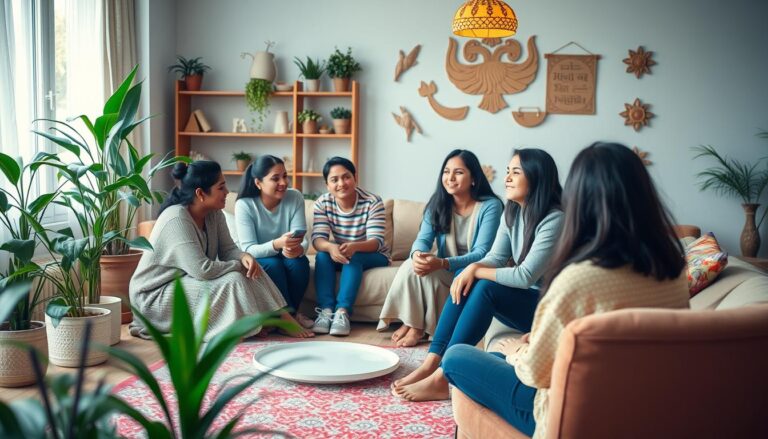Have you ever wondered how Indian students thrive in Russian medical universities despite the initial challenges they face? Pursuing a medical degree abroad is a dream for many, but adapting to a new environment can be daunting. One of the most significant hurdles is mastering the local language, which plays a crucial role in academic and clinical success.
Russian medical universities are increasingly popular among Indian students due to their affordable tuition fees and globally recognized degrees. However, effective communication with faculty and patients often requires proficiency in Russian. This skill not only enhances learning but also ensures a smoother transition into the medical profession.
In this article, we explore practical strategies to help students adapt and excel. From language courses to cultural immersion, we provide insights that make the journey easier. Whether you’re planning to study or already enrolled, these tips will guide you toward success.
For more detailed information on pursuing a medical degree in Russia, visit our comprehensive guide here.
Challenges and Opportunities in Russian Medical Universities
Studying abroad offers unique opportunities but also presents distinct hurdles for aspiring medical professionals. For international students, adapting to a new academic and cultural environment can be both rewarding and challenging. Russian medical universities, known for their affordable tuition fees and globally recognized programs, attract students from around the world. However, mastering the Russian language and navigating local systems are key to success.
Language Challenges for International Students
While many MBBS programs are offered in English, daily interactions and clinical rotations often require proficiency in Russian. This can create significant barriers for students, especially during patient interviews and understanding medical terminology. Learning the local language is not just a requirement but a necessity for effective communication and academic performance.
Many students initially struggle with these challenges but find that enrolling in language courses greatly improves their experience. Overcoming this barrier opens doors to expanded clinical practice opportunities and deeper cultural immersion.
Navigating the University and Local Systems
Adapting to the university system and local environment can be overwhelming. Administrative processes, cultural differences, and everyday activities often require time and effort to understand. For instance, handling visa renewals, academic registrations, and healthcare systems can be time-consuming and complex.
Choosing the right university offer that supports bilingual education and provides resources for international students is crucial. A concerted effort in language learning and cultural adaptation can mitigate these issues and enhance the overall study experience.
| Challenges | Opportunities |
|---|---|
| Language barriers in clinical practice | Expanded clinical opportunities |
| Navigating administrative systems | Improved adaptability and resilience |
| Cultural differences | Deeper cultural understanding |
| Understanding medical terminology | Enhanced communication skills |
For more insights on affordable MBBS programs abroad, explore our detailed guide here. Acknowledging these challenges is the first step toward finding effective solutions, which we will discuss in the next section.
Effective Strategies to Overcome Language Barriers in Russia for MBBS Students
Effective communication is the cornerstone of success in international medical studies. For those pursuing a degree in medicine abroad, mastering the local language is not just a requirement but a vital skill for academic and clinical excellence. Here, we explore proven strategies to help students enhance their proficiency and thrive in their educational journey.

Enrolling in Intensive Language Courses and Workshops
One of the most effective ways to build language skills is by enrolling in intensive courses. Many universities offer specialized programs tailored for international students. These courses focus on medical terminology, conversational skills, and cultural nuances, ensuring students are well-prepared for clinical practice.
Workshops also play a crucial role. They provide hands-on practice and real-world scenarios, helping students gain confidence in their communication abilities. Consistent participation in these programs can significantly improve fluency and comprehension.
Regular Practice and Immersion Techniques
Language learning extends beyond the classroom. Engaging in everyday interactions, such as joining conversation clubs or participating in language exchanges, accelerates progress. Immersing oneself in the local culture by attending events or exploring the city fosters a deeper understanding of the language.
Daily practice, whether through reading medical journals or watching local TV shows, reinforces learning. This approach not only enhances vocabulary but also builds confidence in using the language in diverse settings.
Leveraging Technology and Peer Support Networks
Modern technology offers invaluable tools for language acquisition. Apps and online platforms provide interactive lessons, quizzes, and pronunciation guides, making learning accessible and engaging. These resources bridge the gap between classroom instruction and real-world application.
Peer support networks are equally important. Collaborating with fellow students creates a supportive environment for practice and feedback. Group study sessions and shared experiences foster a sense of community, making the learning process more enjoyable and effective.
For more insights on adapting to life as an international student, explore our detailed guide here. By implementing these strategies, students can overcome linguistic challenges and excel in their medical education.
Cultural Adaptation and Academic Success in Russia
Embracing a new cultural environment is essential for academic and personal growth. For students pursuing a medical degree abroad, adapting to local customs and traditions can significantly enhance their experience. Cultural immersion not only aids in academic performance but also fosters a sense of belonging and well-being.
Integrating into the Russian Cultural Landscape
Understanding and appreciating Russian culture is a key step toward successful adaptation. From traditional cuisine to social norms, immersing oneself in local practices helps bridge cultural gaps. Participating in festivals, exploring historical sites, and engaging with local communities can make the transition smoother.
Many students find that joining cultural clubs or attending local events accelerates their integration. These activities provide opportunities to learn from local traditions and build meaningful connections. Over time, this cultural awareness complements academic growth and enriches the overall experience.
Managing Homesickness and Building Community Connections
Homesickness is a common challenge for international students. Building a support network is crucial to overcoming this hurdle. Connecting with fellow students, joining Indian associations, or seeking mentorship from seniors can provide emotional support and guidance.
Engaging in group activities, such as sports or study sessions, fosters a sense of community. Additionally, maintaining regular communication with family and friends back home helps alleviate feelings of isolation. Balancing academic commitments with social interactions ensures a well-rounded experience.
| Strategy | Benefit |
|---|---|
| Participating in local events | Enhances cultural understanding |
| Joining student groups | Builds a support network |
| Exploring Russian traditions | Enriches personal growth |
| Balancing academics and social life | Improves overall well-being |
Adapting to a new culture is a gradual process that opens doors to numerous opportunities. By embracing local customs and building strong connections, students can thrive in their medical university journey. Every challenge faced during this adaptation contributes to personal and professional development.
Conclusion
Pursuing a medical degree abroad is a transformative journey filled with unique challenges and opportunities. While adapting to a new environment can be daunting, strategic preparation and proactive learning can turn obstacles into stepping stones for growth. Enrolling in targeted courses and embracing immersive experiences significantly enhance academic and clinical skills.
We’ve highlighted the importance of structured learning and cultural adaptation throughout this article. By adopting these strategies, every challenge becomes manageable, fostering both personal and professional development. Successful adaptation leads to better practice, improved communication, and a rewarding educational experience.
We encourage our readers to stay proactive and view every hurdle as an opportunity to grow. Overcoming these challenges not only boosts academic performance but also enriches life experiences. For those considering other options, exploring MBBS in Uzbekistan could be a valuable alternative.
Together, we can navigate this journey, ensuring a fulfilling and successful path in the medical field. Let’s embrace every challenge as a chance to grow and thrive.




